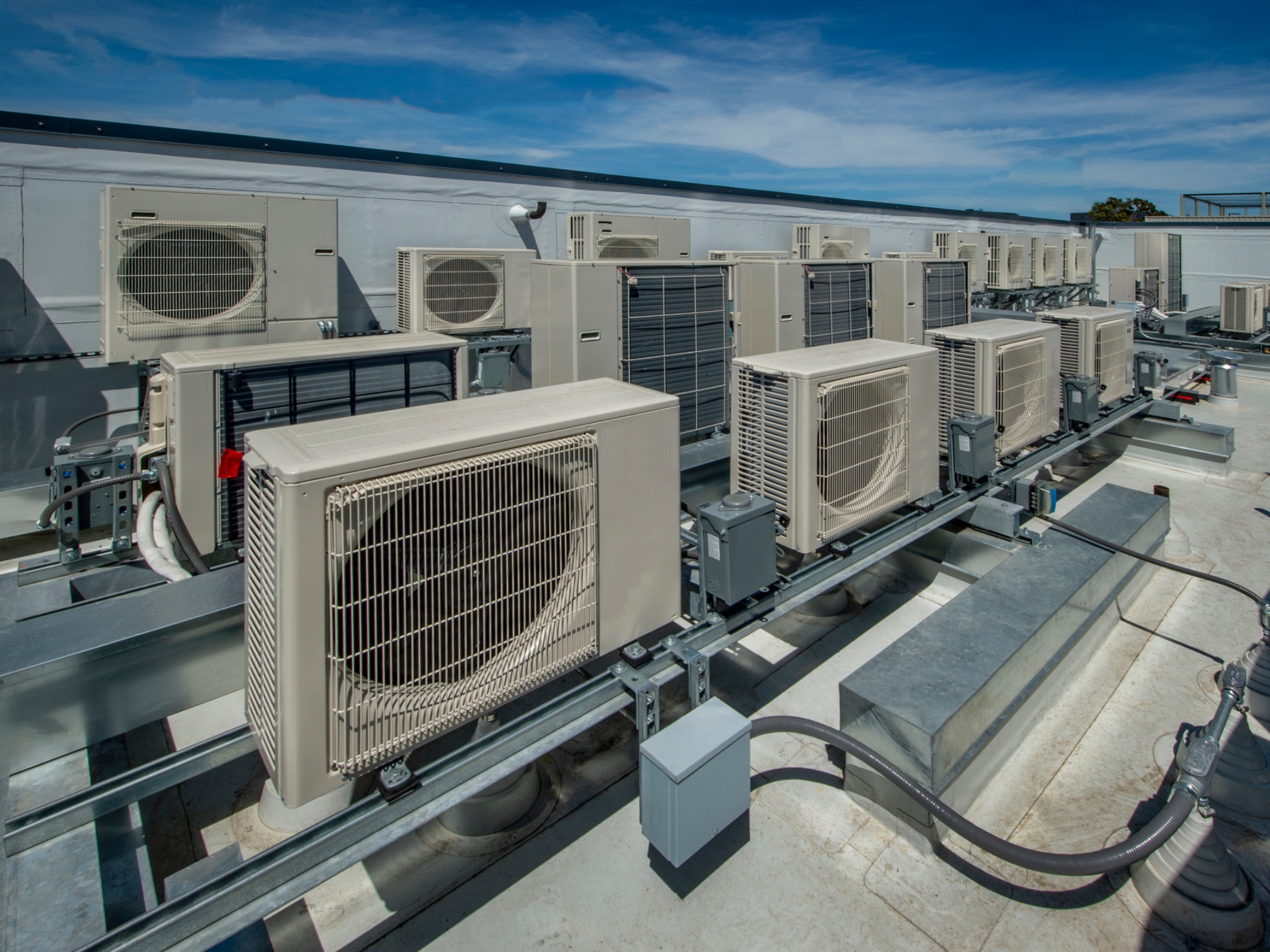The Business Benefits of Air Source Heat Pumps

Air source heat pumps move heat into and out of your building to provide highly efficient heating and cooling, as well as humidity control. Learn how air source units work and how they can benefit your business.
How air source heat pumps work
An air source heat pump system consists of a compressor and two coils made of copper or aluminum tubing; one coil is located indoors and the other one is located outdoors. In the winter, liquid refrigerant in the outdoor coil converts into a gas after absorbing heat from the air. The warm gas refrigerant then moves to the indoor coil where it releases heat as it condenses back into liquid.
In the summer, an air source heat pump simply works in reverse to provide highly efficient cooling. It takes heat from the warm indoor air and moves it outside.
Two widely used types of air source heat pumps in commercial buildings are unitary heat pumps and variable refrigerant flow (VRF) multisplit heat pumps. Smaller (<65,000 BTUH) unitary heat pumps are typically mounted on the ground outside the building while larger systems are roof mounted.
VRF multisplit systems offer zone control and a variety of design options. They're a good fit for applications such as offices, lodging and multifamily buildings. Packaged terminal air source heat pumps and single-package air source vertical heat pumps are also cost-effective options for certain commercial applications.
Benefits for your business
Air source systems provide efficient and cost-effective cooling. They can also reduce energy use for heating by as much as 50% compared to conventional technologies. In addition to lower energy costs, air source heat pumps can benefit your business in a number of ways:
- Better comfort. Multisplit air source systems provide room-by-room temperature control and excellent humidity control throughout your facility.
- Less maintenance. Air source units are easy to install in most buildings and generally require low maintenance and minimal servicing.
- Environmentally friendly. Heat pumps use less energy and produce no onsite emissions.
- Improved safety. The risk of gas leaks or carbon monoxide poisoning from fuel-fired systems is eliminated.
Air source heat pumps can provide energy-efficient comfort in most commercial building applications. However, their performance and capacity decreases in colder temperatures. Therefore, air source units are best suited for moderate climates. A backup heating system may be required in colder climates.
Upgrade for comfort
If your heating or cooling system is older or in need of repair, consider upgrading to a new energy-efficient heat pump. Look for an ENERGY STAR®-certified model. ENERGY STAR commercial systems are independently certified to use less energy than standard units while still providing excellent performance and comfort.